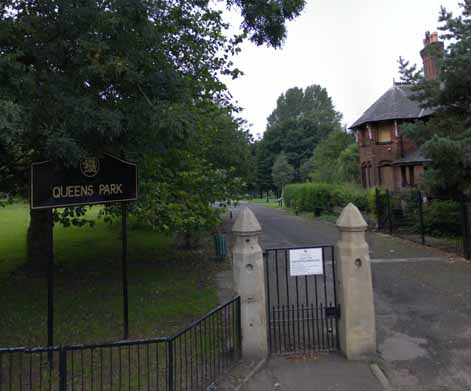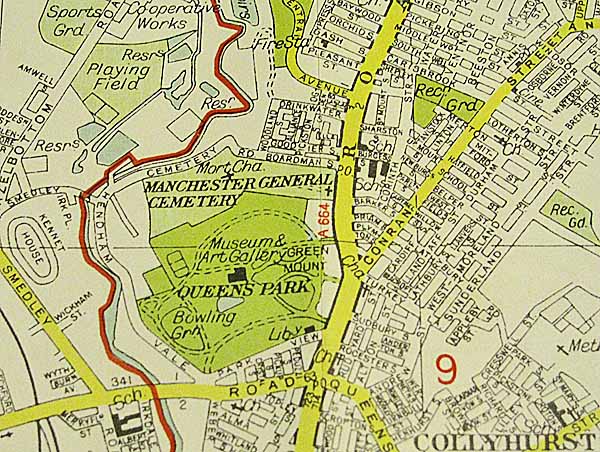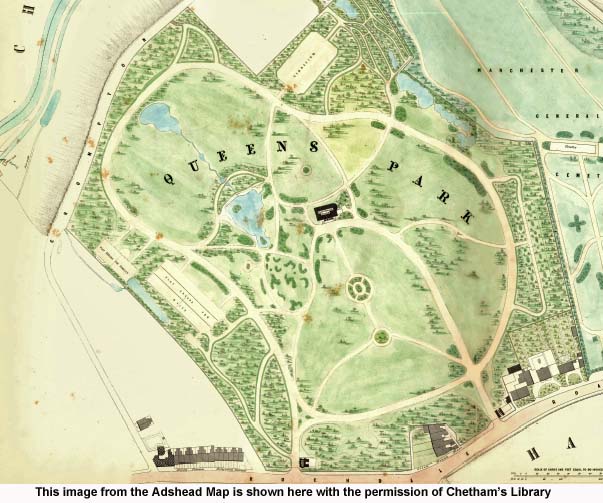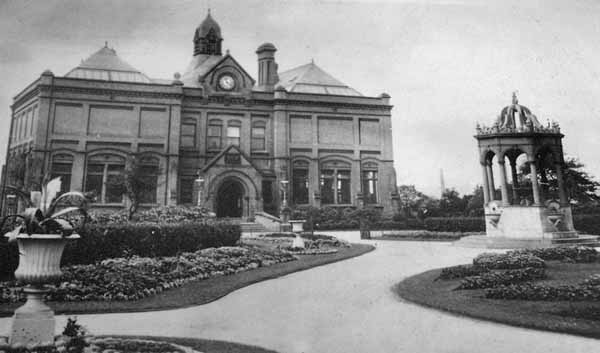|
Queen's
Park - Harpurhey
 Queens Park is located at the junction of Queens Road and Rochdale Road in Harpurhey. 
It was one of the first
parks in Manchester opened on the same day in 1846
as Phillips Park. It is part of a green
corridor leading out of the city centre along the
River Irk. The land originally
belonged to the Houghton Family. They built
Hendham Hall on the site in 1800. In 1845 the
park was designed and laid out by Joshua Major and
purchased by Manchester Corporation for £7,200 in
1846. The segment of the Adshead Map below shows
the park in 1851.
 The original Hendham
Hall was demolished in 1880 and four years later a
new building replaced it (seen below). It
was designed to be a museum and art gallery and
aat later date it became a branch of
Manchester City Art Gallery. If you
click on the links below you can see images of the
inside of the gallery.
 Manchester City Council
describe Queens Park today as follows: "Queens
Park is a large gently steeped green space located
on one of North Manchester's main access routes. It
is a formal park with rose gardens and used mainly
for walking, hosting community festivals and events,
children's play and school 'Nature Hunts' which are
held on a regular basis."
Pevsner says of the gallery / museum building that it is: "The centrepiece of the park ..... (now used for storage and administration) by J. Allison, 1883 - 4, on the site of Hendleham Hall. Red brick, with a gabled porch and otherwise just an even set of ground-floor windows and no upper windows except in the entrance bay, as the upper rooms are top-lit. In gardens facing the museum was a statue by John Cassidy of Benjamin Brierly, a prominent literary figure in the city and dialect poet, erected in 1989, but only the plinth is left." The John Cassidy website says this about the fate of the Brierly statue: "Unfortunately, the statue suffered considerable weathering, and had to be restored in 1929. By the 1970s, however, David Huk tells us that 'Owd Ben' had 'a blank expression and an apparent shortage of waistcoat buttons.' Sadly, despite bring a 'working-class hero', Brierley was not so revered by the local people as time passed. The lower left arm and the sheets of lead representing paper were missing by 1977 when a Ben Brierley celebration was held in Queen's Park, and late one night in the summer of 1980 (some sources have different dates) the statue was 'pulled down by the use of ropes' from its pedestal, breaking into pieces. Later, the fragments were stored in the boathouse in Heaton Park, where they suffered even more damage in an arson attack on the building. Reportedly, the contractors clearing up the damage, failing to realise what they were, sent the remains to be dumped." |